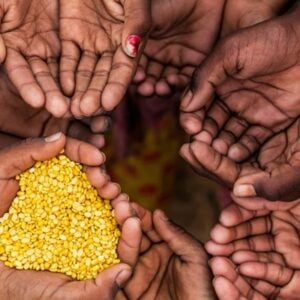One year after famine was first confirmed in Sudan’s Zamzam camp in North Darfur, the humanitarian crisis in the region has worsened, with the population in El Fasher now facing starvation. The city has been under siege, cutting it off from vital humanitarian access. Despite the World Food Programme (WFP) scaling up its operations across Sudan, the residents of El Fasher are left with diminishing resources and a daily battle for survival.
Since all roads to El Fasher remain blocked, WFP has been unable to deliver food assistance by land for over a year. Although digital cash transfers continue to reach 250,000 people in the city, these funds are insufficient due to the scarcity of food in local markets. The ongoing conflict has crippled people’s ability to cope, leaving them reliant on any remaining supplies.
With trade routes blocked, the prices of staple foods such as sorghum and wheat have soared, costing up to 460% more in El Fasher than elsewhere in Sudan. Most community kitchens have shut down, and some families have resorted to eating animal fodder or food waste. Infrastructure like markets and clinics have been damaged in attacks, while reports of violence, looting, and sexual assault have driven many to flee.
Displaced people like eight-year-old Sondos, who escaped El Fasher with her family, describe their ordeal as a struggle against hunger and constant shelling. She is now among 400,000 people in Tawila receiving WFP assistance after fleeing the violence and food shortages.
WFP currently reaches over four million people monthly across Sudan, with 5.5 million supported in May 2025 alone. This includes 1.7 million people in famine-affected or at-risk areas and over 600,000 women and children receiving nutritional support. The organization has helped reduce famine risk in parts of Central and West Darfur, but the impending rainy season could block road access and undo recent gains if aid is interrupted.
While the Sudanese Humanitarian Aid Commission has approved a convoy of humanitarian assistance for El Fasher, the Rapid Support Forces—who have besieged the city for over a year—have not yet granted safe passage. WFP stands ready to send trucks loaded with food but needs urgent guarantees for their safe arrival.
A joint WFP and UNICEF convoy was previously attacked in June, resulting in five deaths and the destruction of aid supplies. WFP now faces a funding shortfall, needing $645 million over the next six months. Without these resources, and with supply pipelines already breaking, many vulnerable families—especially those in displacement camps—could be left without critical food aid.







